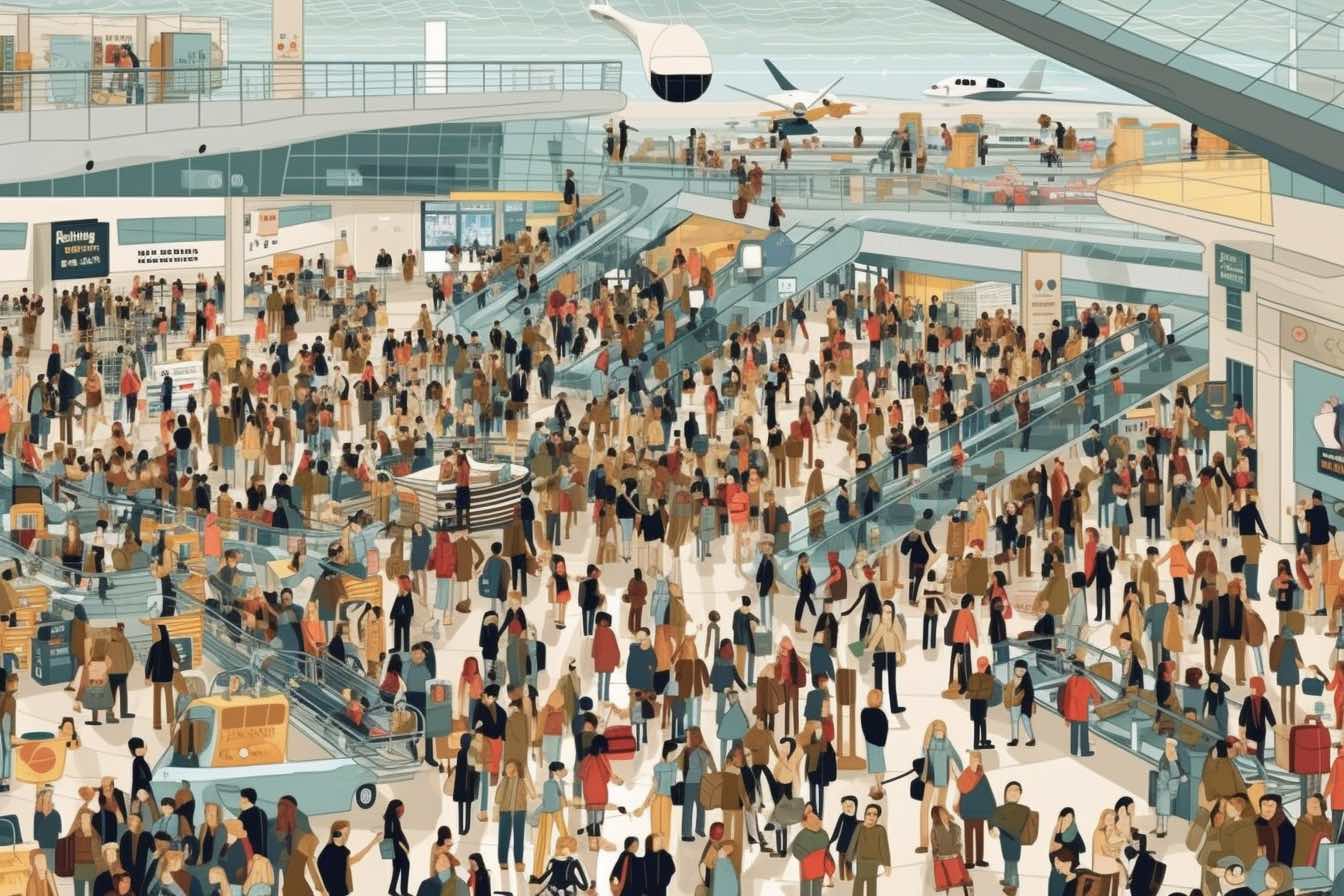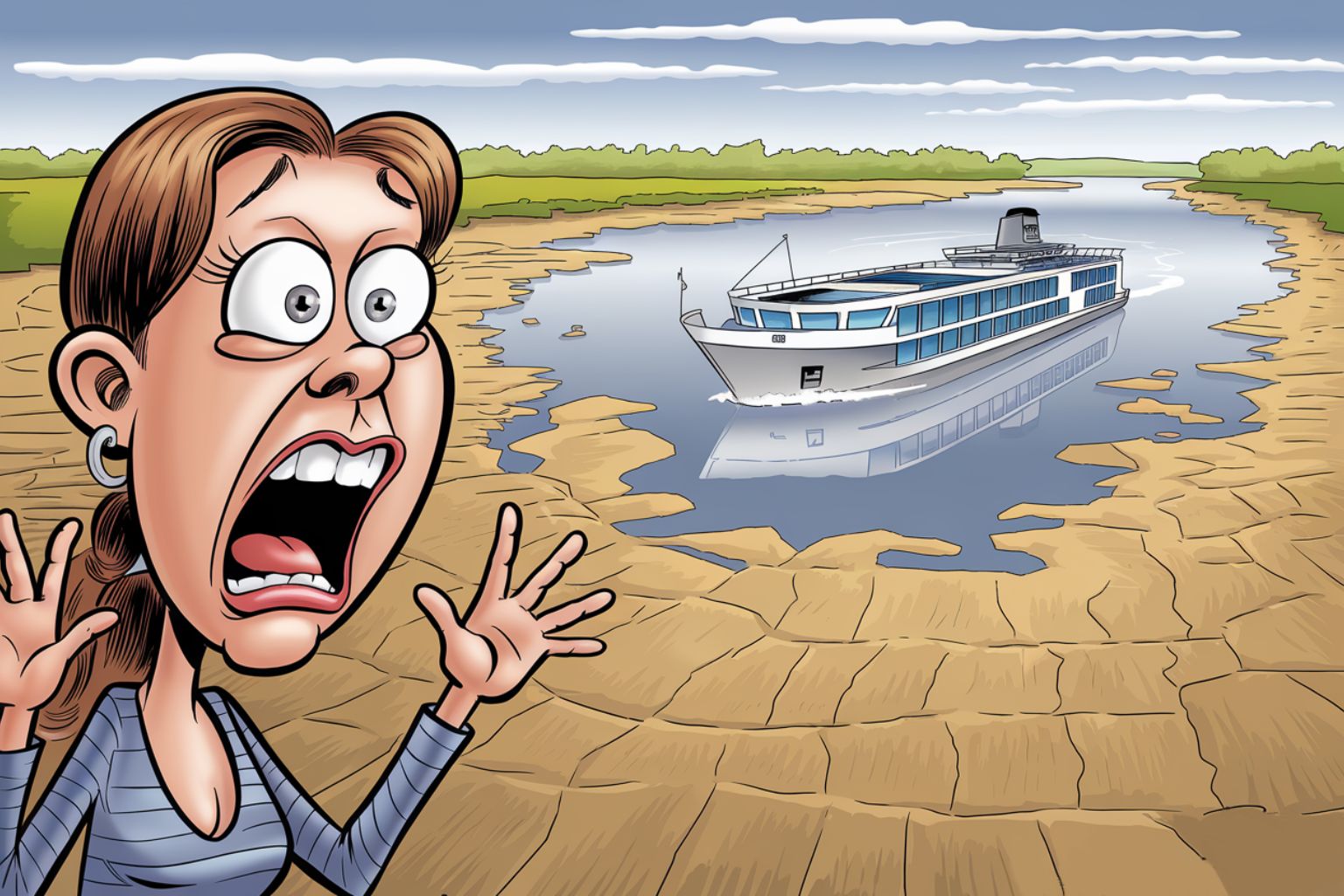Another airline service meltdown is coming. It’s not a question of if, but when it will happen. And this one could make last holiday’s airline problems look like a minor delay.
Says who? Say experts. Says the Federal Aviation Administration. Says everyone.
“There may be some pain ahead for summer travelers,” warns Mike Taylor, a managing director at J.D. Power. “Even with airlines taking precautions, the industry’s basic infrastructure hasn’t recovered from the pandemic. There’s a pilot shortage — and everyone wants to fly.”
Even the FAA is sounding the alarm. This spring, when the agency renewed its waiver for takeoff and landing slots at the busiest East Coast airports, it predicted a 45 percent increase in delays at New York area airports this summer compared to the same period a year ago. That sounds like a whole summer’s worth of meltdowns to me.
The U.S. Travel Association predicts this summer will be a “stress test” for the air travel system. A recent survey commissioned by the organization suggests we’ve already gotten a preview, with 35 percent of Americans having reported a delay or cancellation in the last 12 months. No surprise, then, that only about one-third of recent air travelers (32 percent) are “very satisfied” with their air travel experience.
Even airlines are saying things could get bad. Many have trimmed their schedules, fearful they won’t be able to operate all their scheduled flights.
“Every major airline has warned of travel issues this summer because of staffing, potential weather and traffic controller shortages,” says Andrew Steinberg, a travel advisor with OvationNetwork.
Oh, did I forget to mention the air traffic controller shortage? Yeah, there’s one of those, too. There are 10 percent fewer fully certified controllers than a decade ago.
But what are the odds of a complete breakdown of the system? What are air travelers doing about it — and what should you do about it?
How likely is another air travel meltdown this summer?
It’s very likely. Although none of the experts I spoke with would give me their odds — wouldn’t want to scare away any customers now, would they? — they know all the key ingredients are there for a massive meltdown.
Demand is heating up, with summer airfare searches up by 25 percent compared to this time last year, according to Expedia.
“Airlines are still operating fewer flights than pre-pandemic, which means flights will be fuller this summer,” says Christie Hudson, a spokeswoman for Expedia.
Add to that the staffing problems and the other potential technical issues that led to last year’s air travel problems. Airlines continue to use outdated technology that’s prone to breaking down. The pilot deficit is about to get dramatically worse in the United States. At the moment, we are 8,000 pilots short, but it will grow to nearly 30,000 pilots by 2032, according to a recent estimate. And there’s the air traffic control problem, which I already mentioned.
All you have to do is add a big thunderstorm or a hurricane to the mix, and boom! You’ll be wishing you drove instead.
What airline passengers are doing to avoid a summer travel meltdown
You mean, besides panicking?
I asked a customer service expert how he’s flying this summer. Chip Bell, a professional speaker and author, says he reluctantly booked a midsummer flight from Atlanta to New York for a culture vacation — a week of theater, concerts, and museums.
Yes, the same New York where delays will be up 45 percent.
“But I took precautions,” he added. “I’m flying out early in the morning and working with an experienced travel agent who is available 24/7 and can find alternative flights super-fast.”
And he has a Plan B in case the flights don’t leave: Amtrak. The train takes about 18 hours — which, come to think of it, may be faster than flying.
So what should you do about the coming airline meltdown?
There are ways of avoiding a lengthy delay or disruption because of an airline meltdown.
Avoid airports and routes with a history of delays
Obvious, right? But before you dismiss this advice, ask yourself: Do you know which airports and routes are the most delayed? According to Department of Transportation data analyzed by Air Advisor, Chicago Midway, New York’s JFK and Denver had the highest percentage of delayed flights last summer (all around 60 percent). The most delayed routes were JFK to Atlanta, Fort Lauderdale to Newark and Charleston to LaGuardia. All averaged delays of between 65 and 70 minutes. “It’s reasonable to rely on the summer 2022 data as a way to make some assumptions for the summer of 2023,” says Air Advisor founder Anton Radchenko.
Use a real travel agent
A qualified human travel advisor can help you avoid the worst consequences of a meltdown. And if by some chance you end up stuck in a terminal, they can get you home fast. “A travel advisor can change the flights immediately,” says Ashley Les, a luxury travel advisor with Postcards From. “This ensures that if there are any issues, you are never on the phone with an airline.” Travel agents also have insider knowledge that will ensure you don’t waste your time standing in a long line or sleeping in a terminal. (Here’s our guide to finding a travel advisor.)
Get travel insurance
Most travelers don’t think of a travel insurance policy as something that’s necessary for a quick domestic vacation. But the coming airline meltdown may have people rethinking that conventional wisdom. “The right travel insurance policy can provide compensation for the costs of additional meals, transportation and lodging while significantly delayed,” says Daniel Durazo, a spokesman for Allianz Partners USA. (Related: How to find the best travel insurance for your next trip.)
But wait, there’s more
I have a few meltdown coping mechanisms, too. They include booking the first flight of the day (thanks, Chip). I also study my airline’s refund policies and keep a link to the DOT’s Fly Rights page bookmarked on my browser. I book a nonstop flight wherever possible, which reduces the chance of a delay or disruption.
As a public service, I’ve also published the names, numbers and email addresses of the airline executives on my consumer advocacy site, Elliott.org. If something goes wrong, you might want to send them an email letting them know of your dissatisfaction. They may be able to fix the problem quickly.
But as someone who has watched way too many airline meltdowns, I can tell you that all the planning in the world won’t make a difference on a holiday weekend during the summer when a wall of thunderstorms moves toward the East Coast in slow motion. Bad things will happen.
Which leads me to the only guaranteed way to avoid an air travel disruption this summer. You probably already guessed it — don’t fly.




